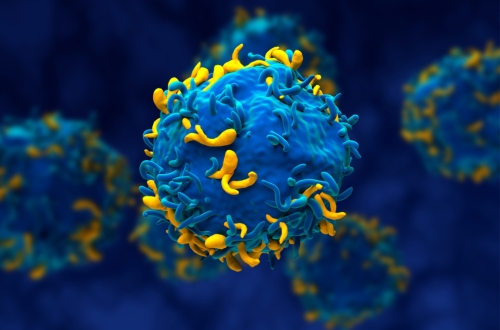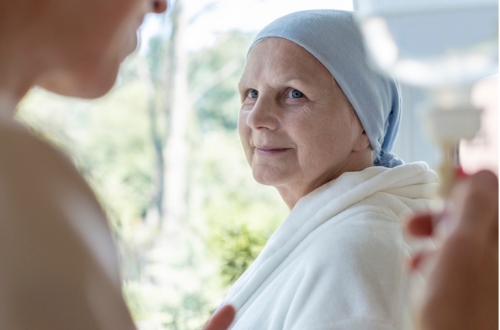Breakthroughs in Pediatric Oncology: Recent Advances in 2024
Every year, an estimated 400,000 children between the ages of 0 and 19 years develop childhood cancer globally, including Hodgkin lymphoma, acute lymphoblastic leukemia, neuroblastoma, Wilms tumor, and many more. However, only 30% of children in low- or middle-income countries survive, compared to over 80% in high-income countries. Recognizing this gap in pediatric cancer care, the World Health Organization (WHO) partnered with St. Jude Children’s Research Hospital among others to create the Global Initiative for Childhood Cancer in 2018, which aims to improve survival from childhood cancer to at least 60% by 2030 and reduce the suffering of children with pediatric cancer worldwide. Thanks to initiatives like this and significant global support for pediatric clinical research in oncology, the death rate from pediatric cancer has dropped by 70% (ages 0-14 years) and 64% (ages 15-19 years) in the last 40 years.
In 2024 alone, the field of pediatric cancer research has witnessed several exciting developments, marking a hopeful era for children battling cancer. Breakthroughs in disease prediction and diagnostic techniques, innovative therapeutic advances, and increasing global awareness have significantly enhanced survival rates and quality of life in this vulnerable population. This article will not only spotlight the upcoming National Childhood Cancer Awareness Month and how TFS Oncology CRO (Contract Research Organization) is taking action, it will present the top five recent advances in pediatric clinical research and clinical trials in oncology in 2024. Continue reading to discover cutting-edge research transforming the landscape of childhood cancer treatment.
Childhood Cancer Awareness Month: Raising Awareness for Pediatric Clinical Research
Childhood cancer, although rare, encompasses over 100 subtypes and is the leading cause of death by disease for children in the United States (US). According to the National Institute of Health (NIH), the idea of National Childhood Cancer Awareness Month was first introduced in 1990 in a presidential proclamation by then-President George H.W. Bush, becoming officially recognized on September 26th, 2019. Since then, every September, advocacy organizations, healthcare institutions, research organizations like TFS, patients and their families join together to raise awareness and funds for supporting the development of better, safer treatments for children battling cancer. Visit the Children’s Cancer Research Fund website here to learn how you can make a difference.
In honor of Childhood Cancer Awareness Month, several organizations host events each year and display gold ribbons to advocate for oncology pediatric clinical research. Without this support, achieving the following five recent breakthroughs in childhood cancer research would not have been possible.
1. Functional Precision Medicine Guides Treatment in Advanced Pediatric Cancer
There are few predictive biomarkers that can enable personalized treatment recommendations for children with rare, relapsed, or refractory cancers. In a study published earlier this year in Nature, De La Rocha and colleagues demonstrated a pioneering functional precision medicine (FPM) approach that combines genetic testing with drug testing on tumor samples. Among six participants with relapsed or refractory pediatric cancer treated with FPM-guided therapy, 83% experienced a significant improvement in progression-free survival and objective response rate compared to those of eight non-guided patients.
This new method, which provides faster results and a broader array of treatment options, involves enriching and processing cancer cells from blood or tumor samples in a lab environment that closely mimics their natural growth conditions. Then, over 120 drugs approved by the US Food and Drug Administration (FDA), including both cancer-specific and non-cancer drugs, are tested individually and in various combinations to identify the most effective treatment. These findings are especially significant because the study primarily enrolled children from ethnic minority populations, who often exhibit different responses to FDA-approved drugs. This advancement is expected to be expanded upon in several larger ongoing clinical trials for personalized cancer treatment in children.
2. St. Jude’s Pediatric Early Warning System Significantly Reduces Mortality in Childhood Cancer
Recent advances in pediatric oncology have significantly improved childhood cancer survival rates in high-income countries, but lower-income countries still face high mortality rates due to treatment complications. To address this disparity, an international team led by St. Jude Children’s Research Hospital has implemented a pediatric early warning system (PEWS) in nearly 100 hospitals across Latin America and Spain. Adapted from Boston Children’s Hospital, PEWS involves nurses assessing patients’ conditions and using an algorithm to determine the necessary care level.
Now implemented in 20 countries with over 16,000 nurses and physicians trained, PEWS has helped clinicians better recognize when pediatric patients are in critical condition before it is too late, resulting in mortality rates decreasing from 39% to 29%. Although sustaining PEWS long-term remains a challenge, the INSPIRE project funded by the National Cancer Institute (NCI) is currently working on identifying and developing strategies for sustaining PEWS in low-resource settings, potentially to improve pediatric cancer outcomes on a global scale.
Visit this article from the NIH to learn more about how PEWS is changing survival outcomes for children with cancer.
3. FDA Approves Tovorafenib for the Treatment of BRAF-mutated Low-Grade Glioma
In 2024, the FDA approved tovorafenib (Ojemda) for children aged 6 months or older with low-grade glioma and BRAF gene changes, particularly for tumors that cannot be fully removed by surgery or have recurred. Low-grade gliomas with BRAF gene changes are among the most common brain tumors in children that grow slowly, causing significant damage to the brain. For children whose tumors are not eligible for removal by surgery or are recurring even after surgery, chemotherapy has been the standard treatment, albeit with several side effects. Therefore, tovorafenib offers a less invasive, more manageable alternative for these patients.
This accelerated FDA approval was supported by results from the FIREFLY-1/2 clinical trials; after receiving tovorafenib for a median duration of 16 months, nearly 70% of children with BRAF fusions and 50% with BRAF V600 mutations experienced tumor shrinkage. Many of these tumors remained smaller for over a year, and participants are still being monitored through pivotal oncology clinical trials to determine the drug’s long-term effects. Unlike traditional chemotherapy, which requires regular hospital visits and comes with significant side effects, tovorafenib is administered orally once a week at home, significantly improving the quality of life for these young patients.
4. FDA Approves the First Medicine for Pediatric Gastroenteropancreatic Neuroendocrine Tumors
In April 2024, the FDA approved Lutathera® (lutetium Lu 177 dotatate) for treating children aged 12 and older with somatostatin receptor-positive (SSTR+) gastroenteropancreatic neuroendocrine tumors (GEP-NETs). This approval makes Lutathera the first therapy specifically reviewed and approved for use in pediatric patients with GEP-NETs. Neuroendocrine tumors (NETs) start in neuroendocrine cells and are typically slow-growing, making early diagnosis challenging, as evidenced by the fact that 10% to 20% of pediatric patients are diagnosed with metastatic disease. Although rare, the incidence of NETs has increased over the years and this approval provides a valuable new treatment option for young patients with this serious cancer type.
Lutathera® was approved based on results from the NETTER-P (pediatric) and NETTER-1 (adults) clinical trials. Safety was evaluated in 9 pediatric patients in NETTER-P, including 4 with GEP-NETs. The main measures were radiation doses in target organs and adverse reactions, which were similar to those observed in adults. Although approved for use in children, the FDA has also issued a post-marketing requirement to assess the long-term safety of lutetium Lu 177 dotatate in adolescents. Lutathera® is also approved in Europe and Japan for similar indications.
5. Liquid Biopsies Are on the Horizon for Children with Solid Cancers
Recent advances in pediatric oncology include the development of liquid biopsies, which analyze genetic material from tumors in blood and other fluids, offering a less invasive and painful alternative to traditional tissue biopsies. This method was initially adopted in adults, but they are now being adapted for children with cancers like Ewing sarcoma and Wilms tumor. Liquid biopsies work by detecting genetic changes that are characteristic of pediatric cancer using a method called low-pass whole-genome sequencing. With this technique, researchers can effectively distinguish between cancerous and non-cancerous samples, as well as monitor treatment responses.
In a 2023 study published in Nature Precision Oncology, Christodoulou and colleagues developed a liquid biopsy test that has shown potential for determining whether a tumor is responding to treatment or may be coming back after initial successful treatment. In the clinical setting, the test has already been used to distinguish between different types of childhood liver cancer and to identify residual brain cancer in patients. These results demonstrate the practical utility of liquid biopsies in real-world scenarios, especially for use in children because they can be repeated more often for frequent disease monitoring. However, despite the promising results, some limitations do exist because pediatric tumors are different from adult tumors and often involve structural chromosome changes. Liquid biopsies will not replace traditional diagnostic methods, but with further validation and clinical trials, they can offer a broader perspective on tumor genetics in pediatric clinical research.
Conclusion
In conclusion, several remarkable advancements in pediatric oncology have emerged recently in the year 2024, promising new hope and improved outcomes for children battling cancer. From innovative diagnostic techniques like liquid biopsies to groundbreaking therapies such as tovorafenib and Lutathera®, these developments are transforming the landscape of childhood cancer treatment. Initiatives like the Global Initiative for Childhood Cancer and the implementation of PEWS continue to drive progress in both high- and low-income countries. As we approach Childhood Cancer Awareness Month this September, join TFS in supporting oncology pediatric clinical research and awareness efforts to ensure that every child, no matter where they live, has access to the best possible cancer care.
How TFS Oncology CRO is Supporting Childhood Cancer Awareness Month 2024
Every September, the St. Jude Children’s Research Hospital holds the St. Jude Walk/Run, a nationwide, 5K-hybrid cancer walk event, that takes place in person and virtually. Scheduled for September 28, 2024, this nationwide, family-friendly event brings together communities to support the lifesaving mission of St. Jude: Finding cures. Saving children.®
In support of Childhood Cancer Awareness Month, TFS Oncology CRO is excited to participate in the St. Jude Walk/Run event, in addition to hosting an in-person event in North Carolina, inviting local employees to join us for a day of unity and purpose. Remote TFS employees are encouraged to participate in their local chapters’ events or virtually through the St. Jude Walk/Run mobile app. This event from TFS Oncology CRO offers a unique opportunity to experience the impact of St. Jude’s work through an interactive campus experience, available both in-person and virtually. Interested in learning more about how TFS Oncology CRO and TFS Pediatrics are driving advancements in pediatric clinical research? Visit our website here!
Visit the St. Jude Children’s Research Hospital website here to learn more about the St. Jude Walk/Run and discover why St. Jude matters to your community.
TFS Oncology CRO: An Industry Leader in Supporting Pediatric Clinical Research
TFS HealthScience’s Oncology and Hematology services are dedicated to providing comprehensive support for your childhood cancer clinical trials, in collaboration with our TFS Pediatrics team of experts. With a proven track record of over 300 cancer-related clinical trials across all phases, we’re committed to delivering solutions that match your needs. Our global operations teams are fully experienced with navigating the complex landscape of cancer clinical research, offering rigorous operational oversight and adherence to global standards under the strong leadership of Bin Pan (Ph.D.), Executive Director, Head of Oncology & Hematology at TFS. Visit our oncology CRO website to learn more or connect with a TFS representative here!
Connect with Us
Contact us today to discover how TFS can be your strategic CRO partner in clinical development.



